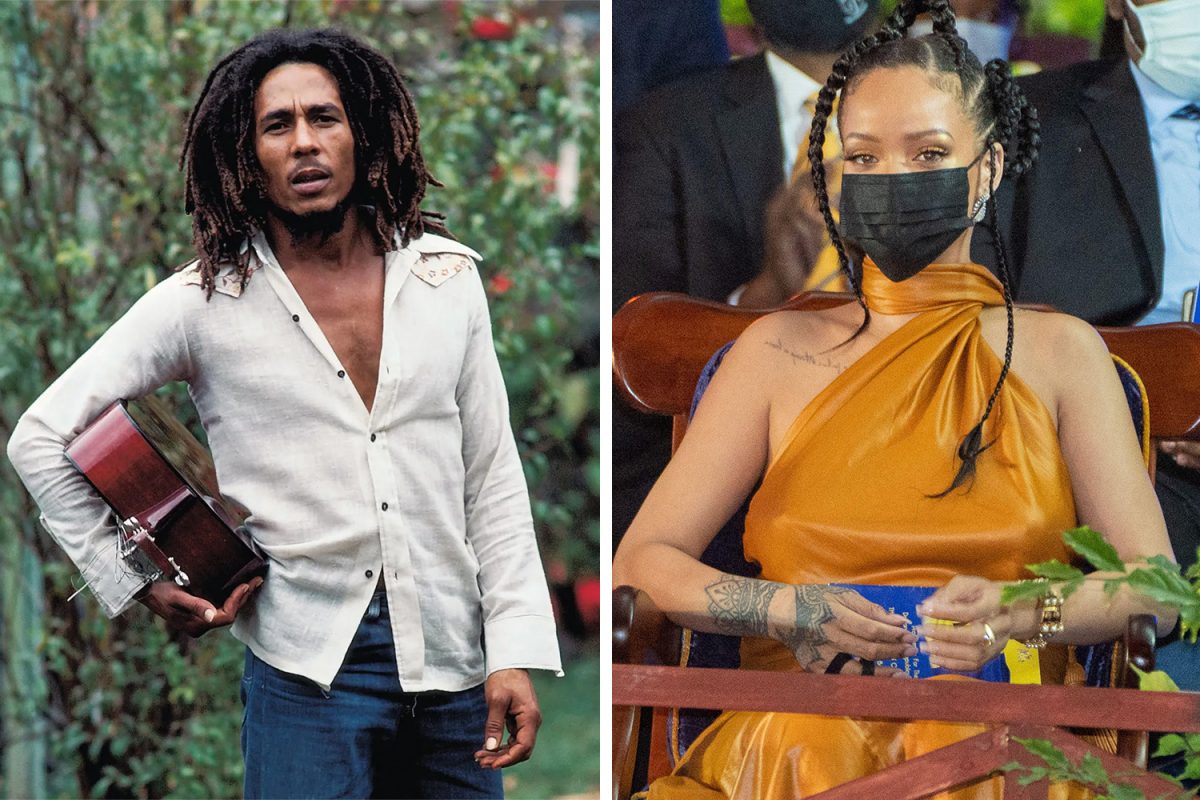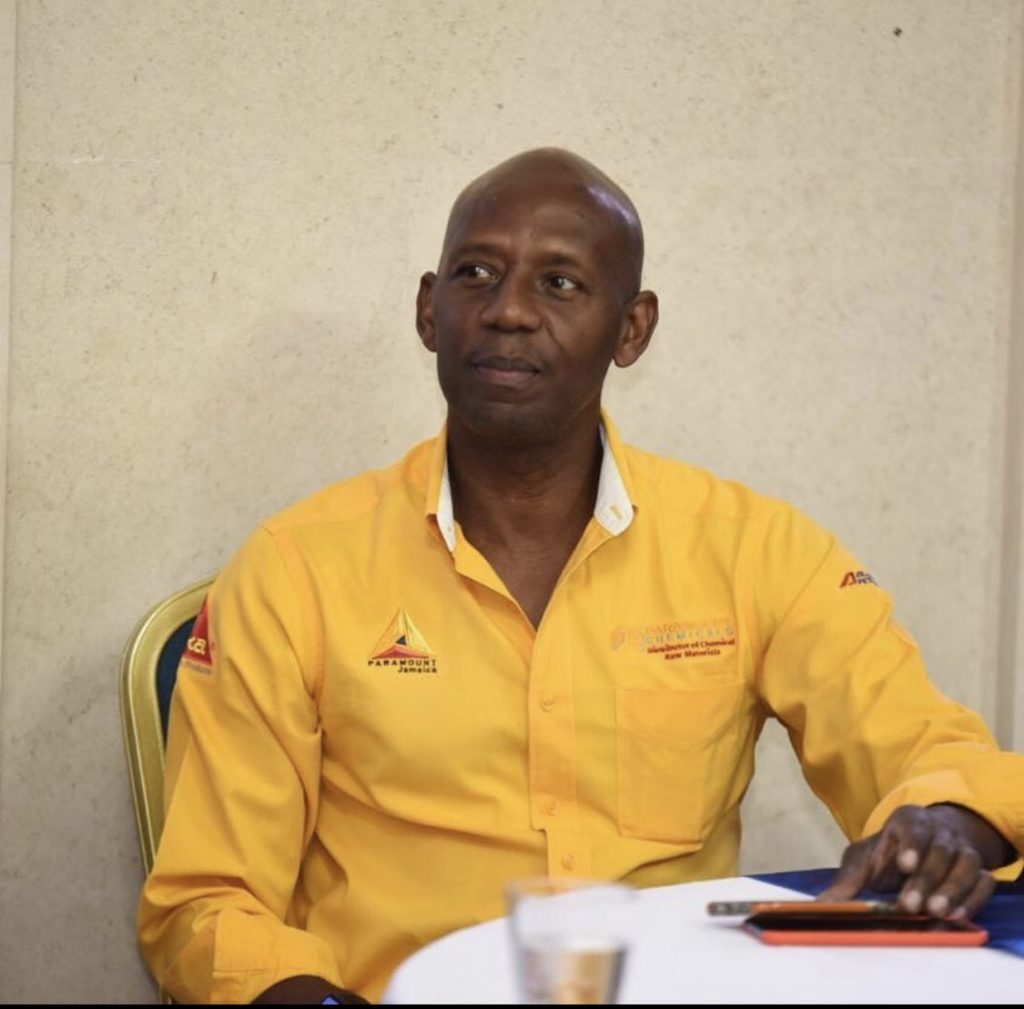Fresh Calls For Bob Marley To Be Made ‘National Hero’ After Rihanna Gets Honor In Barbados

Following the designation of Rihanna as Barbados’ 11th National Hero, by the country’s new president Dame Sandra Mason, the congratulatory responses from Jamaican entertainers have been trickling in, as well as the resumption of calls for Bob Marley to be conferred with the title post haste.
Rihanna, 33, is the first person to be conferred with the title of National Hero of Barbados, since 1998. She is also the second woman to be given the honor after she was recommended by Prime Minister Mia Amor Mottley on Monday night.
The accolade came as Barbados discarded Queen Elizabeth II, as Head of State and transitioned to a Republic. The day also coincides with the country’s 55th Independence.
By virtue of the designation, Rihanna, who was already an Ambassador for Barbados, has been given the title of “Right Excellent” and thus will be referred to officially as “The Right Excellent Robyn Rihanna Fenty”.
Among the Jamaicans who have so far, congratulated the Rude Boy artist are Popcaan, Usain Bolt, and Ce’Cile. “Happy they did it when she’s alive @badgalriri,” Forever artist Popcaan noted on the Jamaica Observer’s report.
Singjay Ce’Cile noted on another post: “Love this”, while Usain Bolt, a longtime admirer of the Umbrella artist posted “high fives”.
However, Jack It Up artist Spragga Benz, for his part, rehashed calls for Bob Marley to be declared a National Hero on his Instagram page, under a post which he re-shared of Rihanna at the ceremony.
“While Jamaica seem to await the Queen’s approval to honor Bob Marley as a National Hero … Barbadian singer Rihanna joins in the celebration of Barbados becoming a Republic and will be appointed National Hero,” Spragga noted.
While he was supported by several followers, there were others who said that the Small Axe artist would not care about the plaudit. “PS – he would not have cared about accolades bestowed by governments,” jscrogin said.
In response, Spragga stated: “@jscrogin he wouldnt but we do. Him we can identify with in our generation.”
For many years, there have been incessant calls by many Jamaicans for Bob Marley to be declared a National Hero, among them music industry veteran Tommy Cowan, who was once marketing manager for The Gong.
Cowan had argued in February last year, that Marley was a global figure and no other person, including the seven National Heroes, had the impact of the Exodus singer, but that there were people in Jamaica who cannot “get beyond the fact that they see this man with a spliff that he can’t be a National Hero”.
However, in a Bill Johnson poll, which was commissioned by The Gleaner in 2017, 55 percent of the 1,500 respondents had said they could not think of anyone else who should be conferred National Hero at the time. The other 45 per cent, according to the poll, had said that Jamaica could add Marley and track icon, now Dancehall producer Usain Bolt, to the line-up.
Professor of Culture, Gender, and Society at the University of the West Indies (UWI), Professor Donna P. Hope, also known as the Dancehall Doctor, was also quoted in the August 2017 Gleaner article titled: We don’t need another hero’ – Majority of Jamaicans do not think there is anyone now who deserves the nation’s highest award , as saying that, for a small nation, Jamaica already had “way too many national heroes”.
“I think we really have to be very careful as to how we go about apportioning that notion of heroine or hero status to individuals,” Hope had stated.
The Professor, who is the publisher of several books on Jamaican music including, Inna Di Dancehall and Reggae Stories, had also pointed out that some persons “want to incorrectly impose hero status on individuals based on achievements in their careers and the recognition they have gained internationally”.

“I know there is a lot of discussion saying that Miss Lou (Louise Bennett-Coverley), Bob Marley, and Usain Bolt should be made national heroes, but I am not of that view,” Professor Hope had said.
“We shouldn’t be saying, ‘Oh, this person did well in music or sports, so make him a national hero’. I mean, they are working for a living, but just because they do well in their career doesn’t mean we should turn them into national heroes… A national hero is someone who selflessly really gives of himself or herself in the project of building this nation that we are a part of, and I don’t see any one who I would say is deserving of that at this moment,” she added.
Hugh Graham, Member of Parliament for St Catherine North Western, had batted for Marley in an opinion piece in The Jamaica Observer in October. According to him, “there are some who are just as deserving of the honour who are yet to be granted their earned consideration” and chief among them was Bob Marley.
Declaring that he fully expected his suggestion to be met with routine resistance, Graham had said that he saw no valid reason why Marley was not already designated a National Hero and that the Redemption Song singer, was no less a hero than Norman Manley.

He also said that while Marley had been already been awarded the Order of Merit (OM) for having achieved ‘International Distinction in the Arts’, “to settle at OM is to confine Bob Marley to the status of a stellar international artiste when he was all that and much more”.
According to Graham, since the Order of National Hero may be conferred upon any person who was born in Jamaica or is, or at the time of his or her death was, a citizen of Jamaica and rendered to Jamaica service of a most distinguished nature, it only makes sense that the case be made using said criterion.
“Bob Marley was born in Jamaica on February 6, 1945 and was a Jamaican at the time of his death on May 11, 1981. Those are the facts but whether or not he was “rendered to Jamaica service of a most distinguished nature” is a matter of opinion,” he said.
The MP said that Bob’s actions were heroic because he dedicated the bulk of his craft to “highlighting and combating injustices of the island as well as giving a voice to the disenfranchised sectors of Jamaica”.
“He never incited physical or violent rebellions like some of our most beloved national heroes but he was a reggae pioneer,” he noted. “Reggae” comes from the term “rege-rege” which means “rags” or “ragged clothes” so the very music he pioneered and championed was born from the will to uplift the lower class.
“Through his music he led a rebellion against all factions that perpetuated inequality and systems that exclusively favoured the haves. He withstood institutionalised classism becoming a hero among the have-nots,” he added.
Graham had also pinpointed Marley’s role in “quelling the political unrest of 1978 where he preached “One Love”, which is now a global anthem, commonly recited by hundreds of thousands of attendants at sports stadiums and arenas.
“Initially, Bob Marley’s music was much more appreciated internationally than locally. Ironically, it is the same way in which he is recognised as a hero worldwide before we consider him a hero in our own nation,” Graham stated.
“In making the case for my proposed national hero, I am fully aware of his transgressions. However, the Bible upon which our constitution is built reads “Let he who is without sin cast the first stone”. Who can correctly claim that any of our established heroes were saints?
He added: “Based on the criterion outlined, how is Bob Marley not qualified to be a national hero? If after all that has been said and documented we are still on the fence then perhaps we ought to restructure our national hero criteria. After which we must reconsider our existing seven…”
